How does a 28-year-old from a small town in Kazakhstan become an in-demand interior designer with projects featured in The New York Times and AD? “Am I really a designer? Is this real?” asks Fariz Mamedov. “It feels like a fairytale.”
An understandable response: not so long ago, Fariz explains, he was singing in a boy band, playing piano and bayan (Russian accordion) professionally, and teaching voice lessons to children while shoehorning in journalism studies at university. Things went well enough that he was able to buy an apartment for his parents and younger sister so they could join him in Almaty, Kazakhstan’s largest city, majestically situated in the foothills of the Trans-Ili Alatau mountains—a 13-hour drive south of where he grew up.
Fariz took on pulling together his family’s new apartment himself. Always drawn to design, he had decorated a room in his grandmother’s place as a kid and was feeling ready for a new creative outlet. Thoroughly engaged by the process, Fariz started posting his finds, work, and tips on Instagram and YouTube. Before he knew it, he not only had a following but his first client, then another. That led to his own small firm, FM Interiors, a digital portfolio, representation by an American publicist (he cold-called Karine Monié after another designer thanked her on social media), and the aforementioned articles. “Interior design,” Fariz tells us, “has become not just a profession but my whole life.”
At Remodelista, without knowing any of this, we took note of Fariz’s website (courtesy of Karine) and were intrigued by a pied-à-terre in Almaty that he designed for empty nesters. In particular, we liked the apartment’s blue-trimmed kitchen with ventilated cupboards, a café table, and a hard-to-pinpoint mashup of design references. Currently at work on a house for these same clients, Fariz was happy to fill us in on the project.
Photographs by Damir Otegen, courtesy of Fariz Mamedov/FM Interiors (@farizmamedov_interiors), styled by Aigerim Mamyraliyeva and Fariz Mamedov.
Above: Located in a new building, the apartment was raw space with no walls when Fariz was called in. He used folding glass doors to link the living room and kitchen, and says he wanted the latter to “feel both light and characterful: I initially planned to paint it blue to match the doors and cornices, but as the design evolved, we decided to go with softer tones to keep the view from the living room airy.” 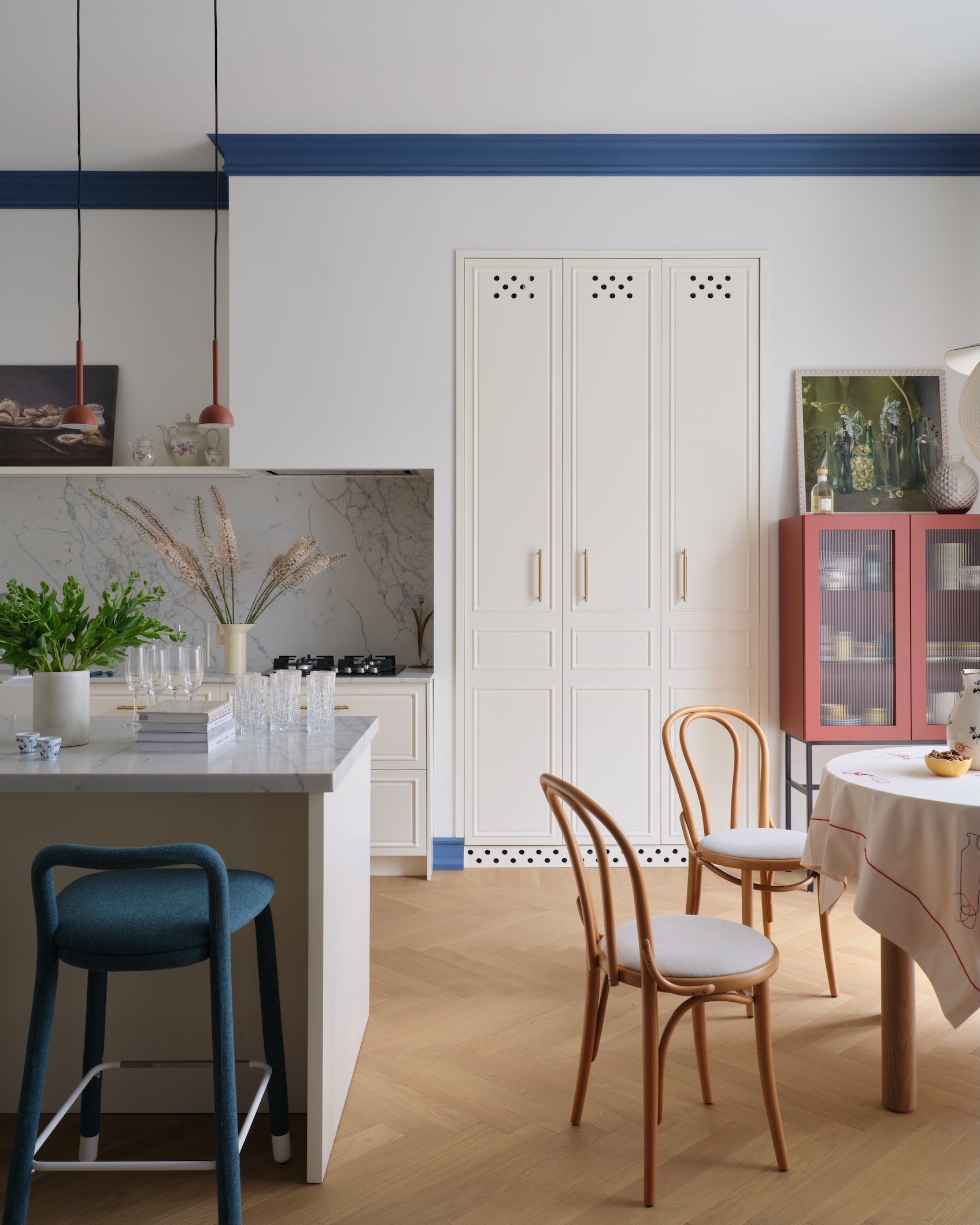 Above: “I wanted to create an interior on the verge of Parisian chic, Scandinavian restraint, and Kazakh hospitality,” Fariz continues. Toward that end, the cabinets, cupboards, and island were all custom built to his design and the oak floor is herringbone parquet.
Above: “I wanted to create an interior on the verge of Parisian chic, Scandinavian restraint, and Kazakh hospitality,” Fariz continues. Toward that end, the cabinets, cupboards, and island were all custom built to his design and the oak floor is herringbone parquet. 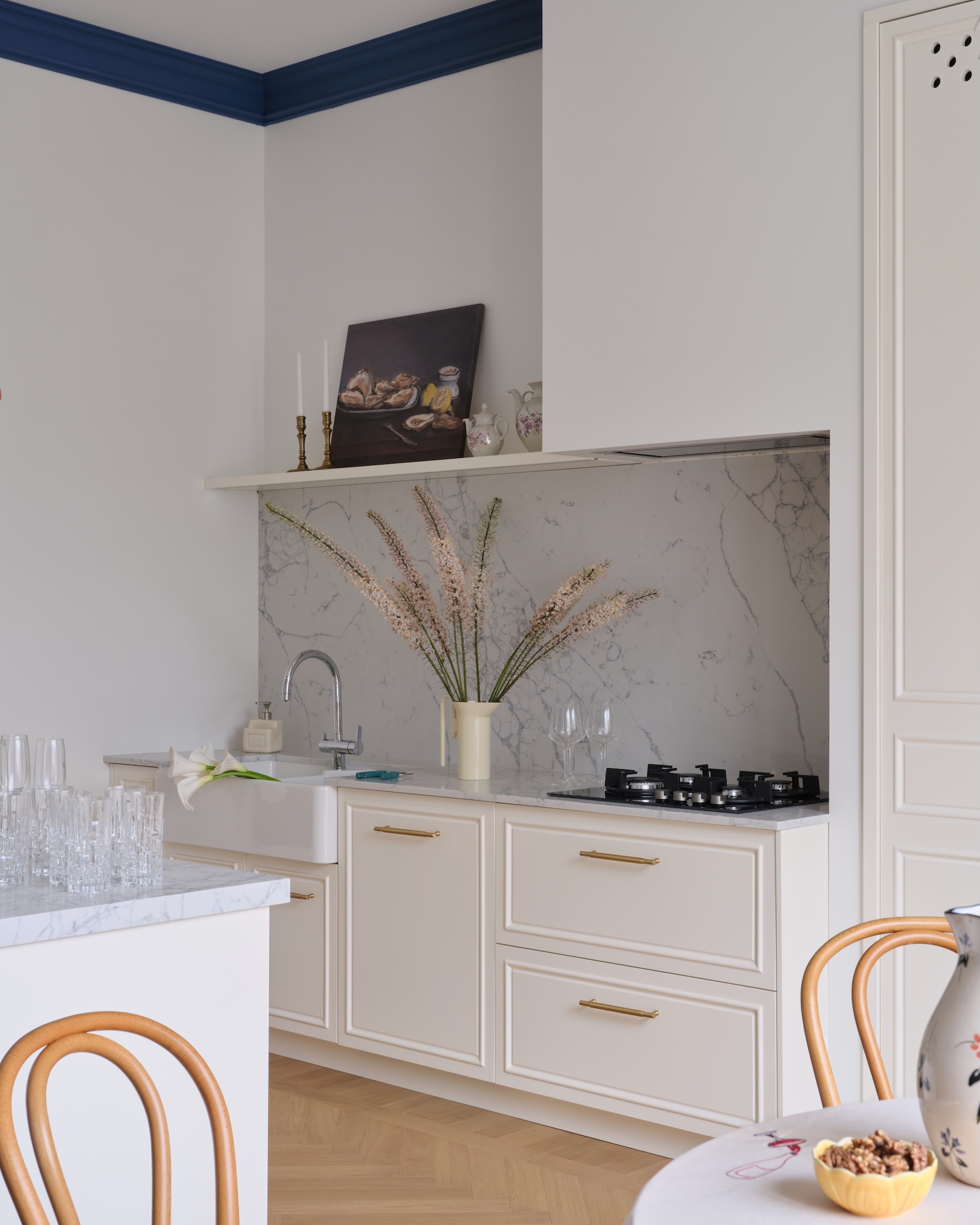 Above: The sink counter, backsplash, and island are topped with quartz stone—”it’s highly durable and wear-resistant, two key requests from my client,” says Fariz. He used paint from Danish brand Flügger on the walls: Offwhite and Museum Blue. The stove hood is “integrated into a plaster enclosure.”
Above: The sink counter, backsplash, and island are topped with quartz stone—”it’s highly durable and wear-resistant, two key requests from my client,” says Fariz. He used paint from Danish brand Flügger on the walls: Offwhite and Museum Blue. The stove hood is “integrated into a plaster enclosure.”
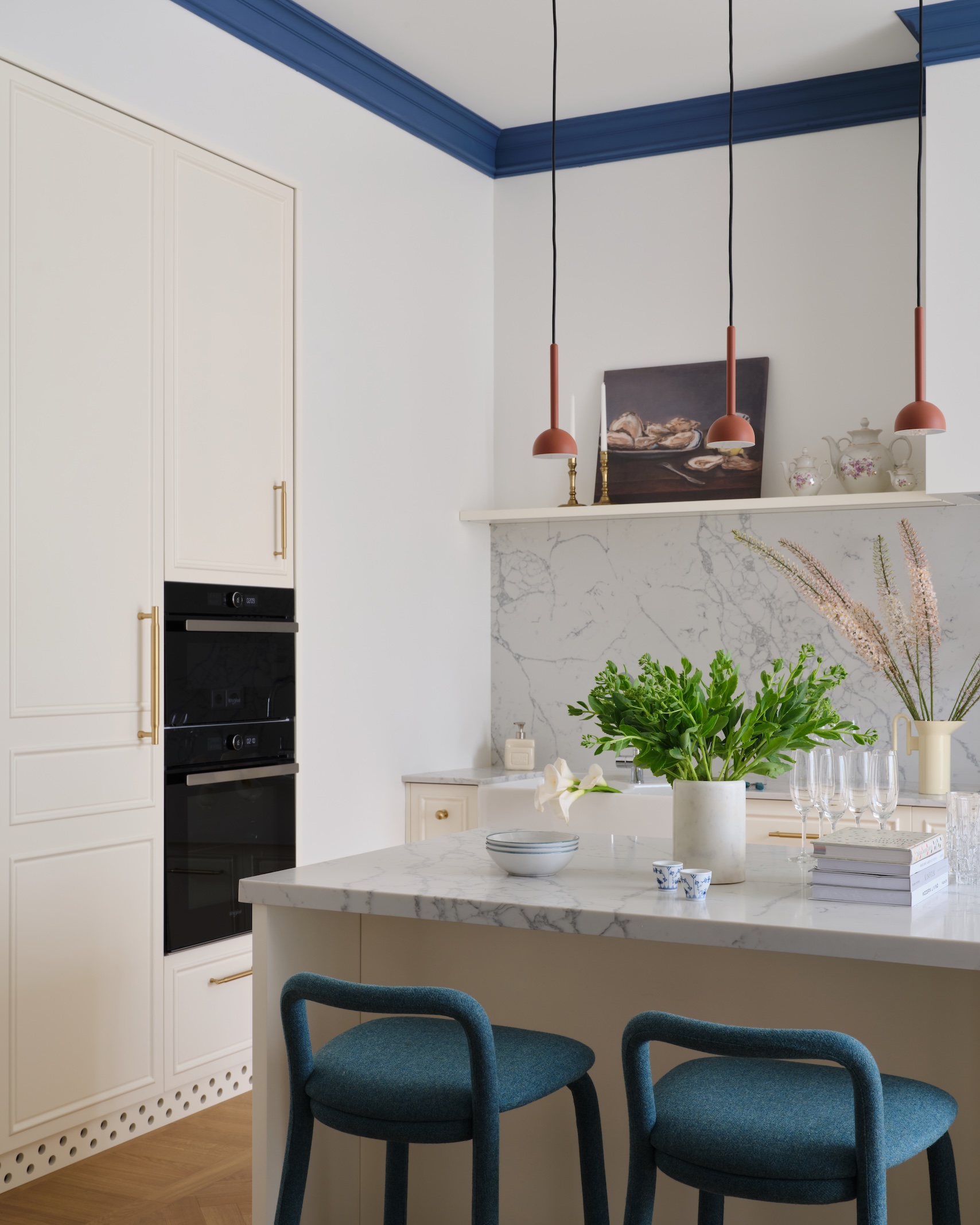 Above: The island’s Blue Pendant Lamps are a Morten & Jonas design from Northern of Oslo and the felt-upholstered Pipi Stools by Robert Paoli are from MIDJ.
Above: The island’s Blue Pendant Lamps are a Morten & Jonas design from Northern of Oslo and the felt-upholstered Pipi Stools by Robert Paoli are from MIDJ.
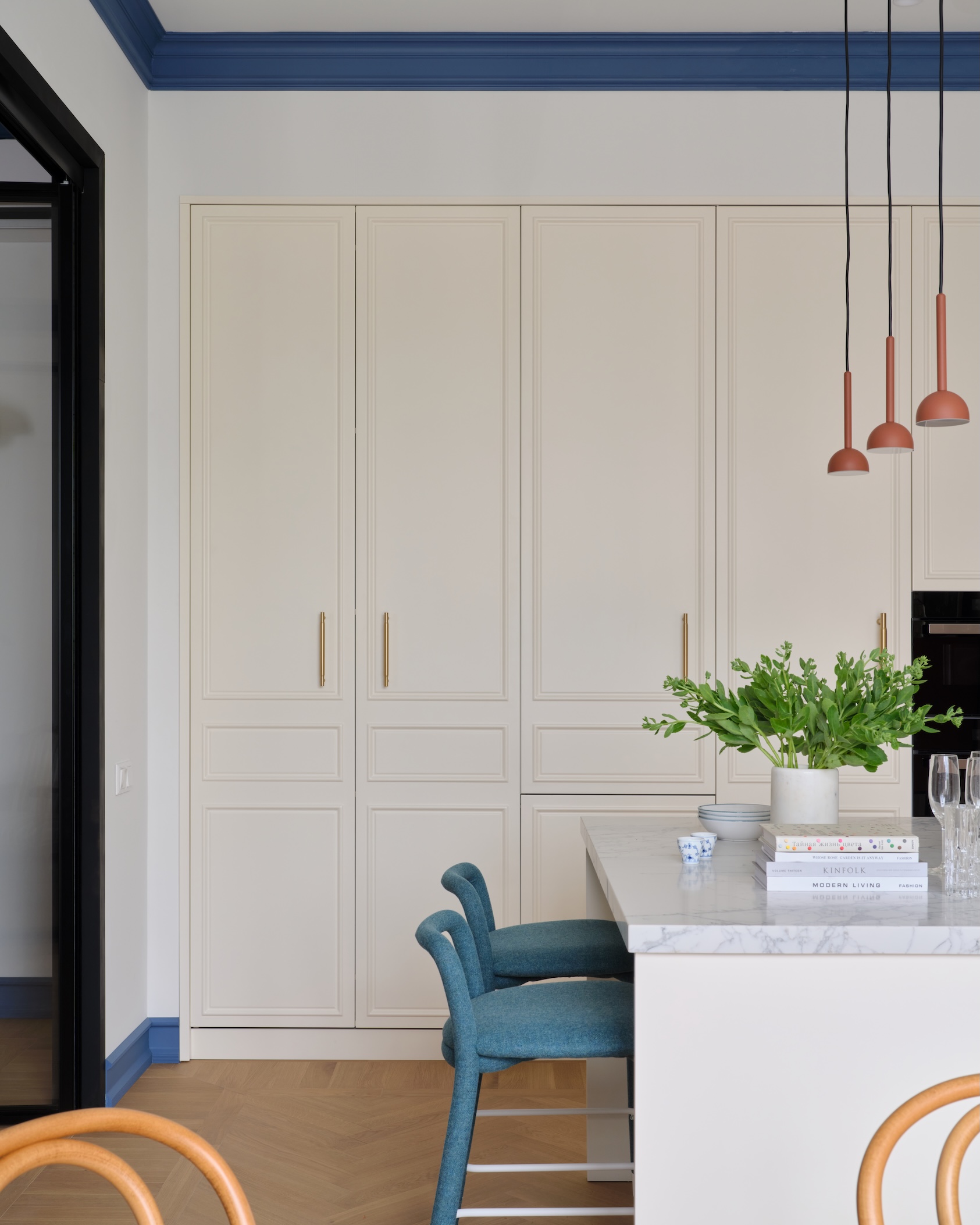 Above: The fridge is concealed behind tall cabinets.
Above: The fridge is concealed behind tall cabinets.
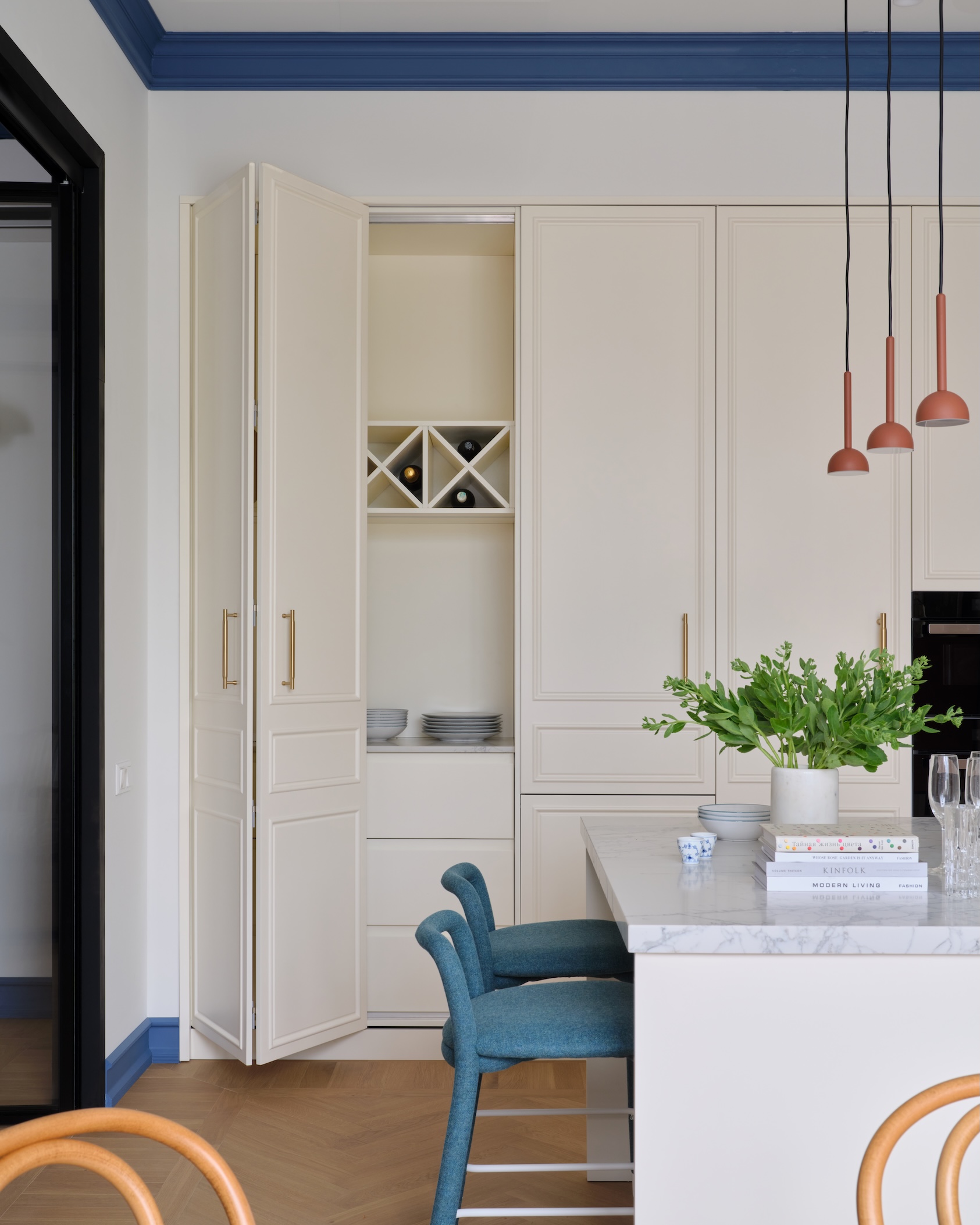 Above: The cabinets also hide useful built-in storage. They composed of MDF, “chosen for its versatility and smooth finish, which allows for a flawless coat of paint.”
Above: The cabinets also hide useful built-in storage. They composed of MDF, “chosen for its versatility and smooth finish, which allows for a flawless coat of paint.”
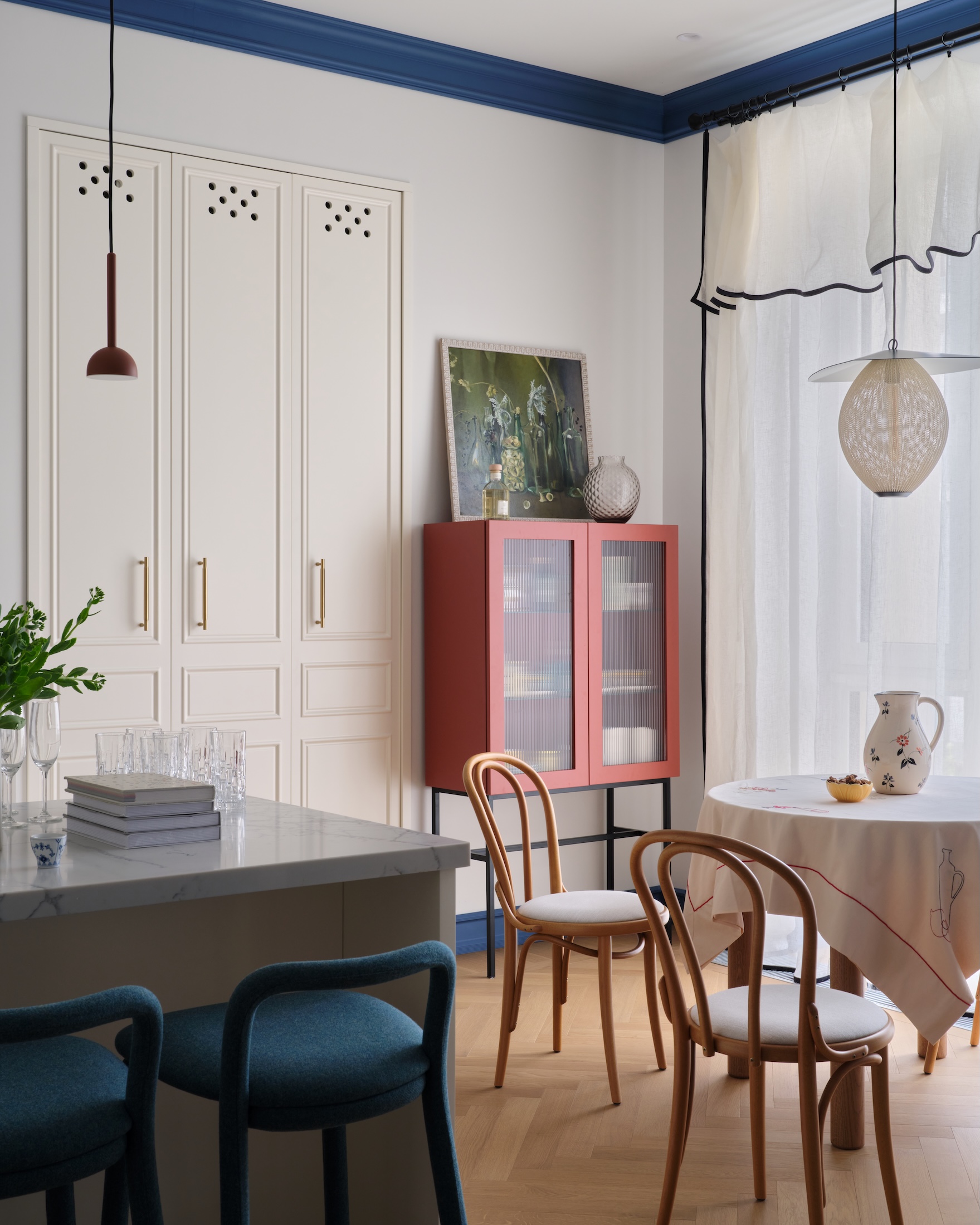 Above: The pantry doors and fridge and stove baseboard have old-fashioned ventilation holes. The glass-fronted cabinet was custom made by a local craftsman to hold tableware and “hide the service hatch for gas maintenance.” For something similar see Remodelista Reconnaissance: Fluted Glass Cabinets, High/Low Edition.
Above: The pantry doors and fridge and stove baseboard have old-fashioned ventilation holes. The glass-fronted cabinet was custom made by a local craftsman to hold tableware and “hide the service hatch for gas maintenance.” For something similar see Remodelista Reconnaissance: Fluted Glass Cabinets, High/Low Edition.
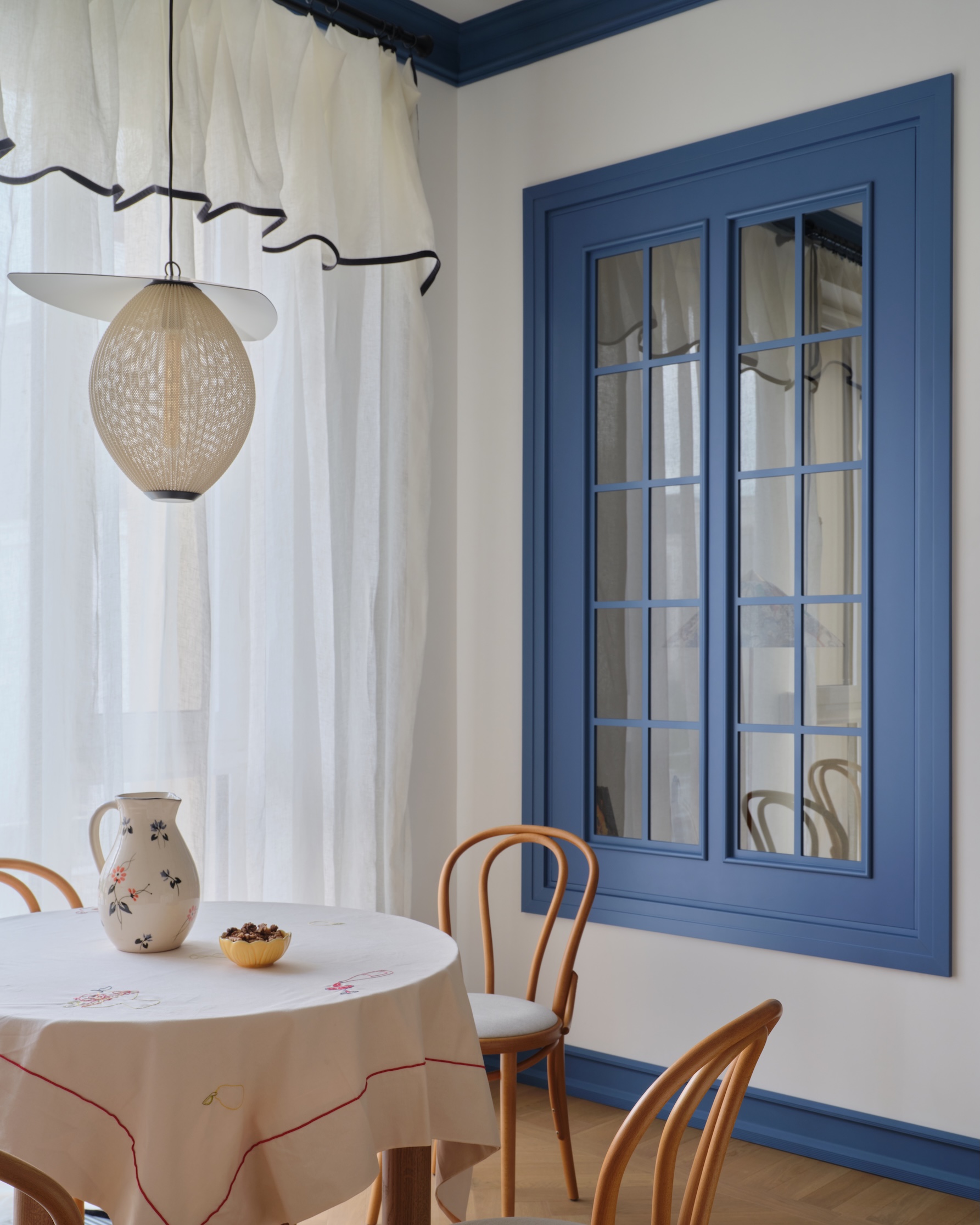 Above: Thonet hairpin bentwood chairs surround the table. The hanging light is Gubi’s Satellite Pendant, 1953 design by Mathieu Matégot.
Above: Thonet hairpin bentwood chairs surround the table. The hanging light is Gubi’s Satellite Pendant, 1953 design by Mathieu Matégot.
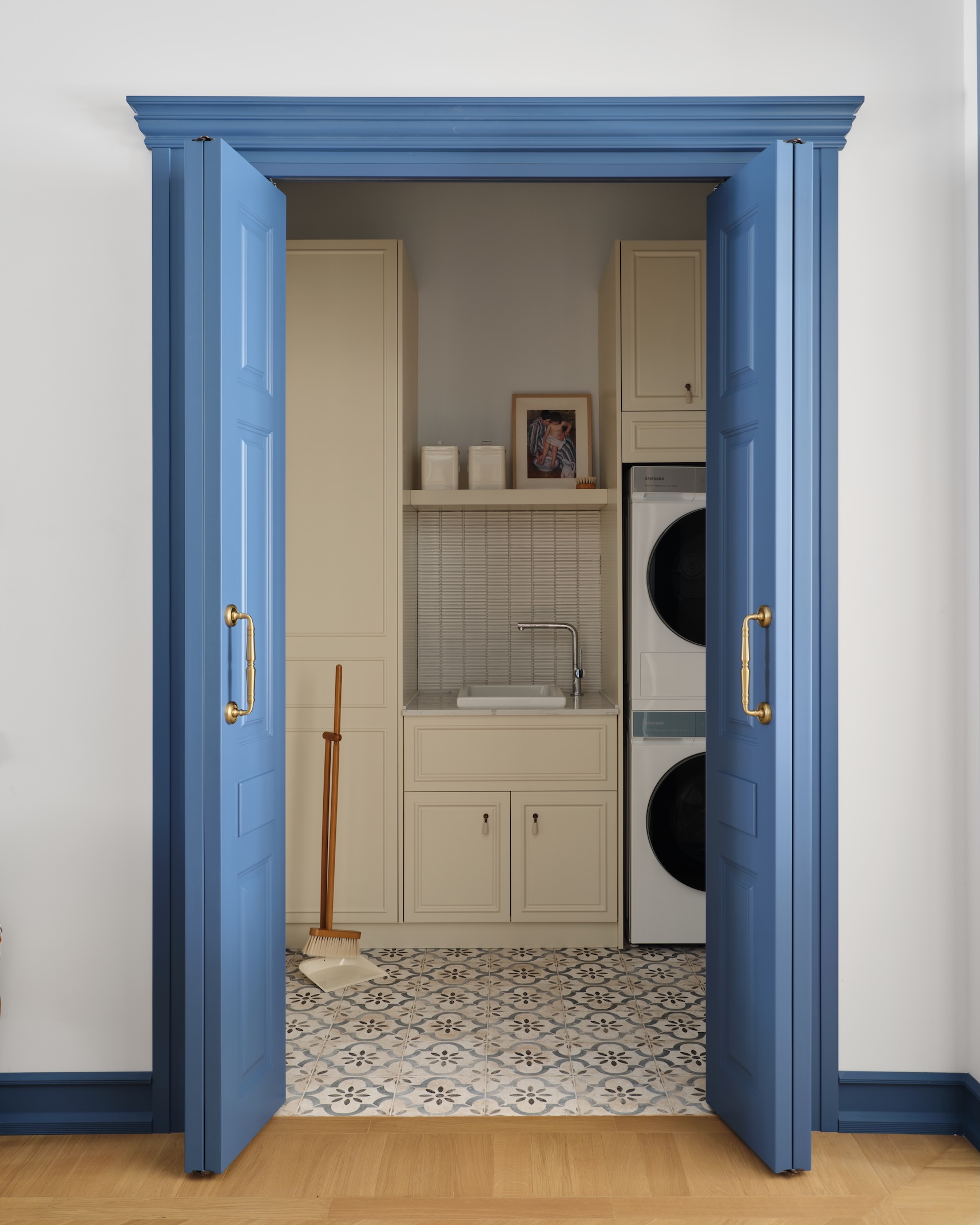 Above: Around the corner, Fariz created a pocket laundry room with built-in cabinets and Spanish encaustic tiles from Cerlat. Of his career pivot, Fariz writes on his website: “Music and design go hand in hand for me, because like a composer, in each project I create a unique melody in which hundreds of semitones merge to tell a new, unique story.”
Above: Around the corner, Fariz created a pocket laundry room with built-in cabinets and Spanish encaustic tiles from Cerlat. Of his career pivot, Fariz writes on his website: “Music and design go hand in hand for me, because like a composer, in each project I create a unique melody in which hundreds of semitones merge to tell a new, unique story.”
More kitchens with blue accents and ventilation holes:



